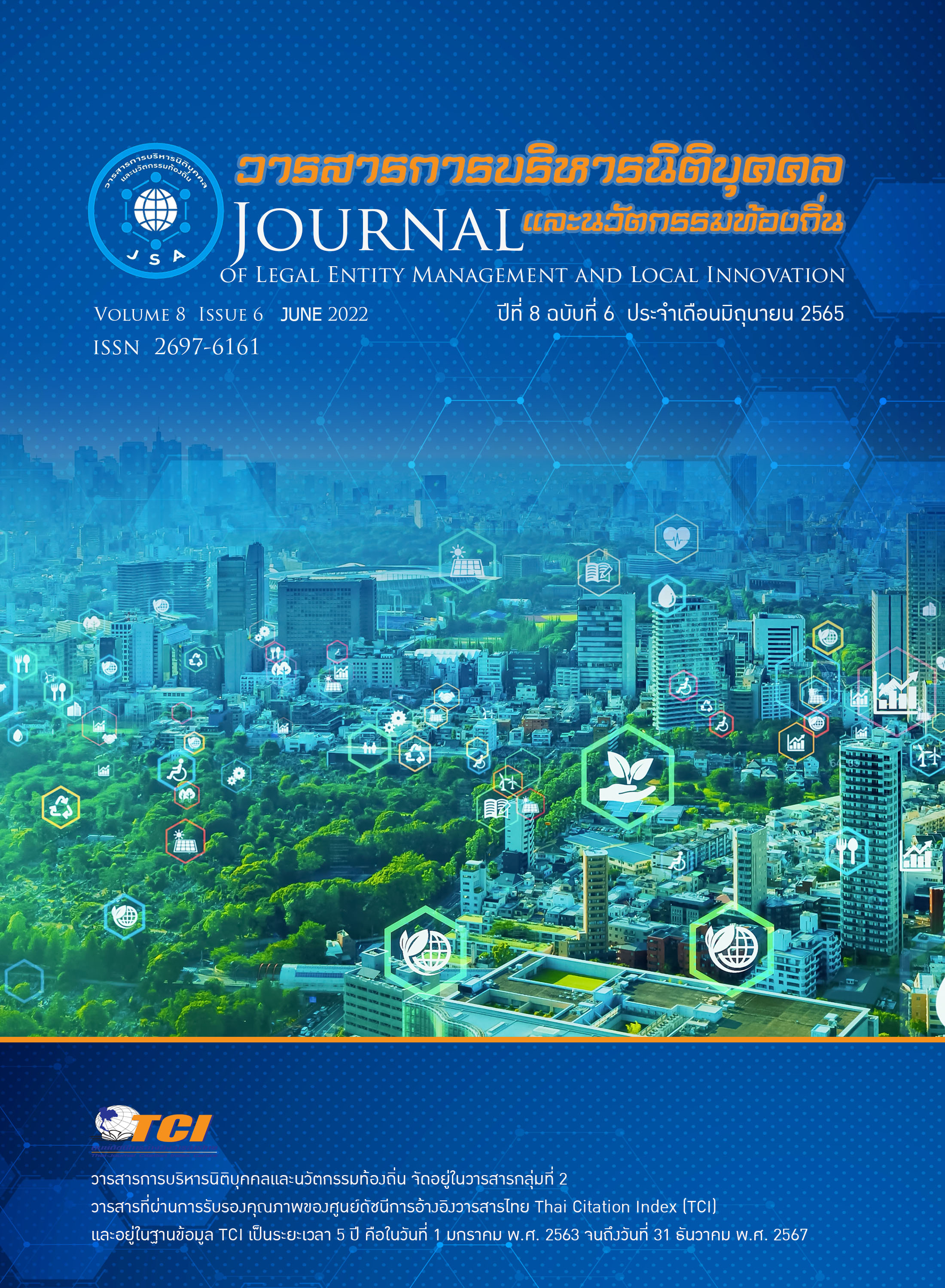The Teaching of Religious Ceremonies Based on Puññakiriyãvatthu to Develop the Learning and Teaching Achievement of the 3rd Secondary School Students, Khe Ha Tha Sai School, Lak Si District, Bangkok Province
Keywords:
The Teaching of Religious , Develop achievement, TeachingAbstract
The study entitled “The Teaching of Religious Ceremonies Based on Puññakiriyãvatthu to Develop the Learning and Teaching Achievement of the 3rd Secondary School Students, Khe Ha Tha Sai School, Lak Si District, Bangkok Province” was an experimental research by means of one group pre-test and pro-test design. The research consisted of the following objectives: 1) to develop the learning activities by applying Puññakiriyãvatthu (the three bases of meritorious action) for the 3rd secondary school students of Khe Ha Tha Sai school, Lak Si district, Bangkok province and 2) to study the learning achievement from the learning management based on Puññakiriyãvatthu for the 3rd secondary school students of Khe Ha Tha Sai school, Lak Si district, Bangkok province. The results of the research work were as follows: 1) From the learning arrangement based on Puññakiriyãvatthu for the 3rd secondary school students of Khe Ha Tha Sai school, Lak Si district, Bangkok province, it was found that students were trained in three aspects: 1) behavior training which were disciplines, responsibility, sacrifice, helping others, respecting the rules of the society, respecting other people’s rights, punctuality, and behaving appropriately in the society; 2) mental training which included attentiveness, paying attention and concentrating to learning, self-improvement, including the arrangement of environment contributing to the knowledge management within the organization; and 3) intellectual training which included realizing the reality starting from beliefs, opinions, knowledge, understanding, reasoning, contemplating, examining, constructive thinking, knowledge management, and analyzing. 2) From comparing the learning achievement from the learning management based on Puññakiriyãvatthu for the 3rd secondary school students of Khe Ha Tha Sai school, Lak Si district, Bangkok province, it was found as follows: 2.1) The results of the pre-test when comparing the criteria based on the learning management by specifying 60 % criterion found that there were 32 students who did not meet the criteria, and 0 student who passed the criteria. 2.2) The results of the pro-test when comparing the criteria based on the learning management by specifying 60 % criterion found that there were 32 students who met the criteria. 2.3) The results of both pre-test and post-test revealed that all 32 students of the 3rd secondary school had the score higher in post-test than in pre-test by which 9 students comprising the following students: the 3rd, 10th, 13th, 17th, 20th, 21st, 24th, 26th, and 30th had 10 more score higher in post-test than in pre-test. This represented the appropriateness of the religious ceremonies through the learning management based on Puññakiriyãvatthu that it was able to develop the learning achievement of the students and according to the assumption set. 3) The results of both pre-test and post-test for the teaching of religious ceremonies through the learning management based on Puññakiriyãvatthu found that the pre-test had the mean score of = 10.18 with the standard deviation equal to 1.267 while the post-test had the mean score of = 16.42 with the standard deviation equal to 1.417. The mean of the difference between the two scores was equal to 6.24. The t-test was equal to 31.324. The results found that the post-test had a higher score than the pre-test with a statistical significance at the 0.05 level, according to the assumption set.


